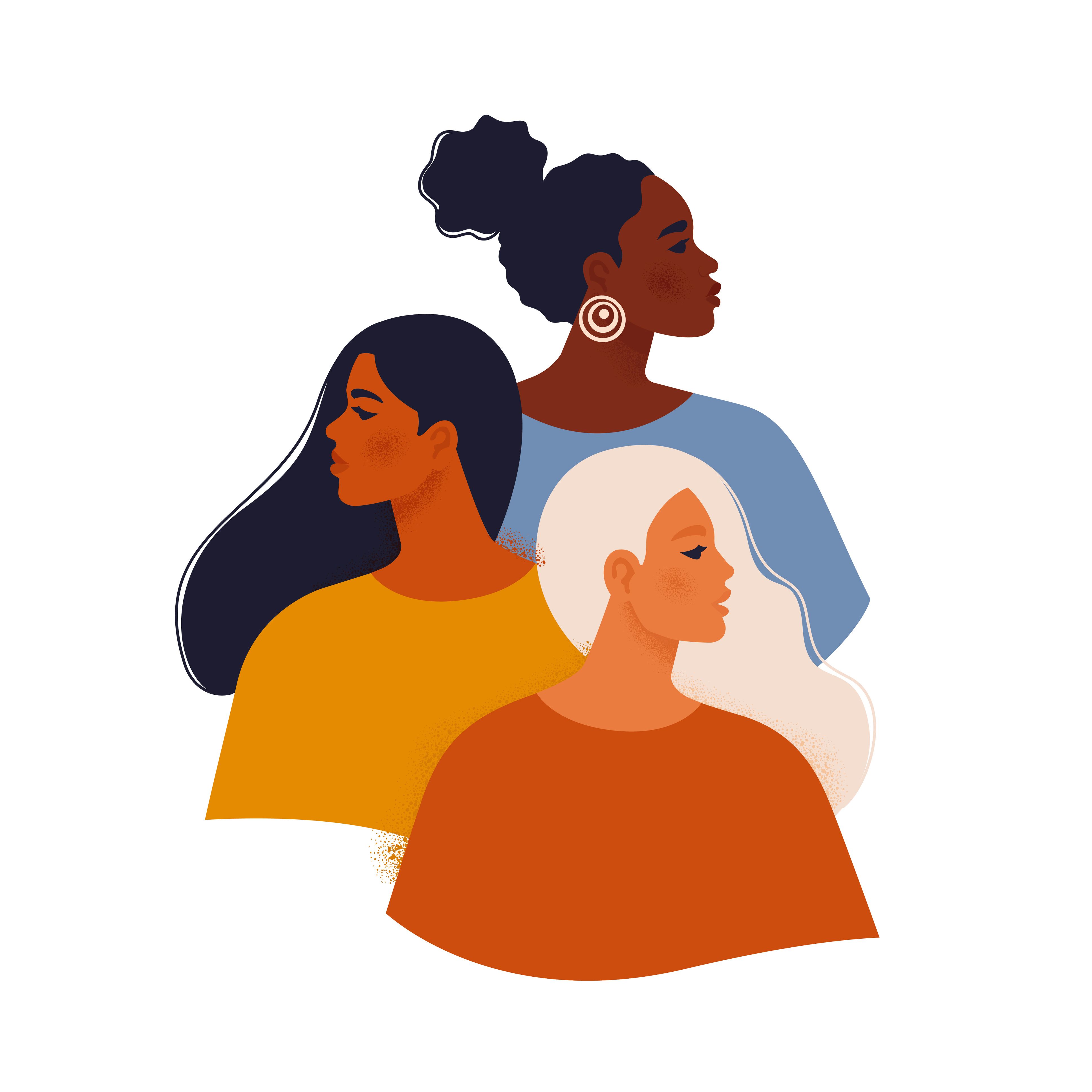- Case-Based Roundtable
- General Dermatology
- Eczema
- Chronic Hand Eczema
- Alopecia
- Aesthetics
- Vitiligo
- COVID-19
- Actinic Keratosis
- Precision Medicine and Biologics
- Rare Disease
- Wound Care
- Rosacea
- Psoriasis
- Psoriatic Arthritis
- Atopic Dermatitis
- Melasma
- NP and PA
- Skin Cancer
- Hidradenitis Suppurativa
- Drug Watch
- Pigmentary Disorders
- Acne
- Pediatric Dermatology
- Practice Management
- Prurigo Nodularis
- Buy-and-Bill
News
Article
Advocating for Increased Representation of Women in Dermatology
Author(s):
The Bristol Myers Squibb-hosted event brought together a panel of leading women in dermatology to discuss the challenges they’ve faced and how women can support each other.
Angelina Bambina/AdobeStock

Bristol Myers Squibb hosted a Women’s Connection Forum Program as part of the 2024 American Academy of Dermatology Annual Meeting in San Diego, California. The forum featured a panel of leading women in dermatology, including Latanya Benjamin, MD, FAAD, FAAP; Alexandra Golant, MD, FAAD; Jenny Murase, MD, FAAD; and Mona Shahriari, MD, FAAD.1
The panelists reviewed both their personal and professional journeys that led them to their current careers and then shared anecdotes of challenges women face in the medical community, but also how to overcome those challenges together.
Bristol Myers Squibb’s event was in conjunction with their B-NOW program, or Bristol Myers Squibb Network of Women. The vision of the B-NOW program is“ All women can advance to their desired career levels, including the executive and c-suite levels, creating a powerfully diverse, globally inclusive workspace.”
“I really think this is a landmark connection forum that they put together, because the reality is as women not only in dermatology, but also as career women out there, there are definitely some disparities that go on, whether it's related to pay, whether it's related to promotion, or really just getting your name out there and exposure,” said Mona Shahriari, MD, FAAD, a board-certified dermatologist at Central CT Dermatology and assistant clinical professor of Dermatology at the Yale School of Medicine, in an interview with Dermatology Times.
Shahriari added, “The purpose of this women's connection forum is to not only help us gain connections with other women leaders within the field and have those friendships develop and networking opportunities develop, but also to hear about the struggles of other women. Sometimes when you normalize it and you have somebody who you look up to tell you, ‘I went through the same challenges. This is how I overcame them.’ It can really help you feel closer to those individuals.”
During the forum, moderator Monica Elias, PharmD, RPh, of Bristol Myers Squibb, led the audience through a discussion of data related to the representation of women in management positions and the representation of women in published literature.
A study conducted in 2021 found that among academic dermatology programs, women only held 39% of department positions. The study also found that men held a significantly higher proportion of microsurgery fellowship director positions while women held significantly more pediatric fellowship director positions.2 Additionally, a 2018-2019 Association of American Medical Colleges survey documented women’s representation in academic leadership positions and found that fewer women were progressing into academic higher positions.3
In clinical research and authorship, only 1 in 3 NIH grants in dermatology went to women from 2009-2014.4 A study published in JAMA Dermatology found that women were less likely to be listed as last authors or senior authorship in dermatology journals.5
Expert Perspectives
Panelists Benjamin, Golant, Murase, and Shahriari shared with attendees some of the biggest challenges they have faced as women in dermatology, what they would tell their younger selves, and how to make sure women always have a seat at the table.
Benjamin discussed her most difficult career decision, which was deciding between becoming a pediatrician or a dermatologist. For many years, Benjamin always thought she would become a pediatrician, but when she discovered her love for dermatology as well, she felt torn. Benjamin said her decision felt even more difficult at the time because she didn’t feel that she had strong mentorship or guidance, and there didn’t seem to be a clear path to combine both pediatrics and dermatology. Now, as the president-elect for the Women’s Dermatologic Society, one of her main goals is promoting mentorship among women.
Golant tackled the question of what advice she would give to her 21-year-old self, which includes “It’s okay to say no.” Many people, especially women, experience anxiety around saying no to something for fear of losing out on an opportunity. The panelists also brought up in response to Golant’s advice the 4 F’s: fame, fortune, family, and fun. Golant encouraged attendees to consider if the proposed opportunities fulfill one of the 4 F’s, and if it doesn’t, consider saying no.
Murase reviewed the challenges faced with work-life balance while also raising children. She stressed that most mothers or women are not awake at 4am to do laundry because that’s what they enjoy. While we may call women and mothers superheroes for all that they handle, Murase stressed it’s okay to not have a handle on everything going on within a family or in the home. Murase also encouraged attendees to lean on their “village” of people for help, both personally and professionally.
Shahriari concluded the challenges discussion by explaining how over time, her family’s motto of “If you work hard, you’re going to achieve your goals,” has quickly become complicated being a woman in the medical profession. She goes on to explain the numerous invisible barriers to equity that women face but men do not. Shahriari also reviewed situations of “back-handed” compliments in the form of patients calling her “honey” or “kiddo,” or male colleagues telling her she received any opportunity because she looks pretty on camera. Shahriari aims to always make sure every woman, including herself, has an equal seat at the table with men.
According to Bristol Myers Squibb, “B-NOW is eager to elevate the important role women are playing across all aspects of health care and is looking forward to future opportunities to engage with the external community to foster dialogue with the goal of creating a more diverse and inclusive environment.”
References
- Elias M, Benjamin L, Golant A, Murase J, Shahriari M. Women connection forum in dermatology. Presented at: 2024 American Academy of Dermatology Annual Meeting; March 7, 2024; San Diego, CA.
- Kamath P, Muthiah N, Venkatesh A, Pugliano-Mauro M. Gender and leadership: continued progress in academic dermatology. J Am Acad Dermatol. 2023;89(2):394-396. doi:10.1016/j.jaad.2023.03.054
- Pierce SK, Schwartzberg PL, Shah NN, Taylor N. Women in immunology: 2020 and beyond. Nat Immunol. 2020;21(3):254-258. doi:10.1038/s41590-020-0618-4
- Cheng MY, Sukhov A, Sultani H, Kim K, Maverakis E. Trends in national institutes of health funding of principal investigators in dermatology research by academic degree and sex. JAMA Dermatol. 2016;152(8):883-888. doi:10.1001/jamadermatol.2016.0271
- Laughter MR, YemcMG, Presley CL, et al. Gender representation in the authorship of dermatology publications. J Am Acad Dermatol. 2022;86(3):698-700. doi:10.1016/j.jaad.2021.03.019
Newsletter
Like what you’re reading? Subscribe to Dermatology Times for weekly updates on therapies, innovations, and real-world practice tips.






